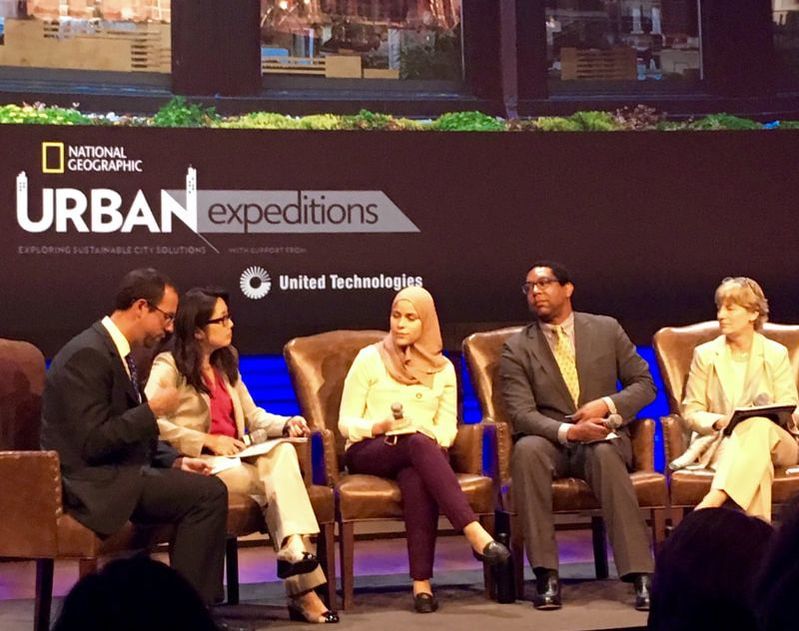|
Naamal De Silva At 3pm yesterday, I attended an event on sustainable cities at National Geographic. The president of National Geographic, Gary Knell, said of an announcement happening at that moment nearby, “Climate change is not a partisan issue. On behalf of the Geographic, we are disappointed in this decision. We will stay the course.” The decision was that the United States would withdraw from the Kyoto Protocol. I was disappointed too, but yes, we will stay the course! A single roadblock cannot stall progress when there are an infinite number of paths to creating positive change.
After Gary’s introduction, speaker after speaker highlighted that working towards environmental sustainability was not only good for nature, it was good for business and good for human health. Lucia Athens, the Chief Sustainability Officer of the city of Austin spoke of their dense, walkable EcoDistrict: "If you walking or taking a hike instead of sitting in traffic, you have more joy, more sense of community." Rob Kunzig of National Geographic mentioned that cities reduce our environmental footprint, and that even Dubai “a city of glass boxes in the dessert” was becoming greener. He also highlighted that when people move to cities, they have fewer children. Alaa Murabit, a physician and advocate for inclusive peace, emphasized that women’s fertility and the education of girls are the most effective ways to fight climate change. She urged us to be inclusive (social and environmental issues are connected), realistic (we must address the needs of this planet before exploring others) and patient (elected officials and other leaders focus on creating short-term benefits that “forego the important for the urgent”). I found this to be an inspired trio of ideas. Eric Shaw, the head of the DC Office of Planning discussed the importance of learning from the past: historically, people considered the local climate and landscape in how and where we built our homes. The president of United Technologies, Greg Hayes, “a conservative republican at heart,” spoke of the importance of new technologies and urban sustainability in fighting climate change. Among other things, his mega-corporation makes air conditioners and elevators, and he highlighted the role that coolants play in exacerbating global climate change. Manufacturing these products also releases a huge amount of toxins into the air. These are massive problems, or viewed differently, massive opportunities. As Alaa emphasized, we must be realistic. As Greg discussed, we need air conditioning to enable dense cities and to prevent food waste in transporting and storing food. But, we also need to invest in new technologies that enable more efficient cooling and fewer negative environmental impacts. We must invest in alternative energy sources to power elevators and the trucks that transport produce. We need regulations that limit the toxins released into our air, land and water through manufacturing. And, as individuals, corporations, and governments, we can all work to minimize waste: we don’t need freezing office buildings during heat waves, to keep the air conditioning on while the windows are open, or to buy more food than we need. Dan Gilgoff, National Geographic's lead for digital media announced the publication of this article on six signs of progress in addressing climate change. Hope is abundant - we just have to look for it and to create it!
1 Comment
|
Curating Hope features the personal stories of diverse people who protect nature. Together, we can envision a more sustainable future.Archives
November 2020
Categories
All
|


 RSS Feed
RSS Feed